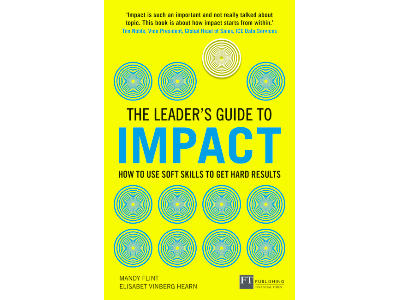 Feedback or feedforward?
Feedback or feedforward?
Do you like receiving feedback? Or do you like giving it?
If the answer is no to either of those questions, you are sadly not alone. Many people dislike or even fear feedback. And this is probably because people often encounter constructive, corrective feedback more frequently than positive, reinforcing feedback. We have encountered many managers/leaders over the years who have said: ”If I’m not saying anything about their performance, they can correctly assume that all is going well”. Good leadership and indeed good followership involves letting people know about their performance regularly, in fact it needs to be part of the DNA of the workplace. Not just at appraisal or review time.
We hear so many people surprised at appraisal time, saying “I had no idea they felt like that about me and my work”. This applies to the feedback they get regardless of whether it is good or bad.
It doesn’t have to be that way. Feedback, when done well, can be one of the most important tools for success in your career. Without it, you are flying blind; you don’t know how your actions and behviours are perceived by others, or what the impact is – good OR bad. Because we need to give and receive much more positive feedback too.
Understanding the feedback that you have
Understanding the impact you have and how you affect others is supremely important in your own learning and throughout your career. It doesn’t matter what stage of your career you are at or at what level you are, you can still learn through the feedback you receive. We learn just as much through the positive feedback that we get. We can have positive blind spots as well as not so positive blind spots.
Sometimes these natural strengths that we all have, are such a natural part of our behaviours that we don’t even know that we do it. So when someone points them out to us, not only does it helps us to use them more, they can also help us with the areas we need to develop in. But if they are a strength blindspot you may not even know that they could help you with your development!
Here’s an example of positive/strength blindspots.
“When I was younger someone gave me feedback on how good they thought I was at selling. The person thought I was a great sales person because I always kept in touch with clients and that always led to more sales. I also followed up and suggested the next steps in the process. They said I was not only good at it but they had observed me in different situations and learned a great deal from me.
I was very shocked to get the feedback, as personally I never saw myself as a sales person at all. They had observed me in some situations and asked me what I was thinking during these follow-ups with clients. That question really made me stop and think. As this was such a natural strength for me I really didn’t know how I did it. I was just not aware.
So I reflected on what I did and said “well, I just believe passionately that I have something that the client really needs and that they may not even know what they need so it is my role to help them work out the next steps in the process.” I was also genuinely interested and curious in “how” they were doing and what was currently making things easy for them and where they needed help, and support.
On reflection this made me realise how I was using my strength, which up until then had been a positive blindspot for me. The feedback has allowed me to use my strength to help me with a development area. When times were tough and I had to go into difficult situations with clients, I used my natural strength to help me. I simply used my passionate belief that I have something that will help them, which they don’t even know that they need. I also had my genuine desire to support them. This helps me when times are tough and I don’t want to go to that meeting!”
Let’s call it feedforward
In an effort to revive the whole concept and create a new way of looking at it, why don’t we call it feedforward! This is a better description of what feedback can do for you, it can feed you (or others) information that can move you/them forward, to more effective interactions and better results.
Why so many people don’t do feedforward at all or as much as they could
- People don’t see the benefits of giving feedforward or the consequences of not
- They’ve had bad experience with it
- They don’t know how to do it (giving and/or receiving)
- They don’t think they have the time to do it
- They don’t think it’s their responsibility to give others feedforward
- They are afraid of how the other person may react
In part 2 we will look at why feedforward is so important and we will explore the feedforward culture in more detail.
Authors
Mandy Flint & Elisabet Vinberg Hearn. Authors of award-winning book “The Team Formula: A Leadership Tale of a Team who found their Way”








